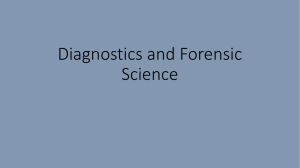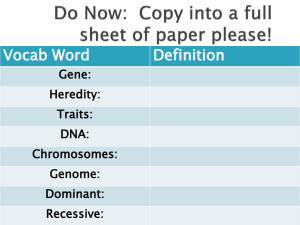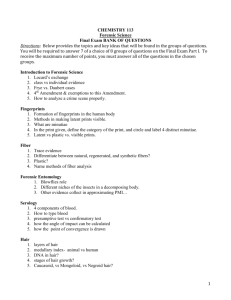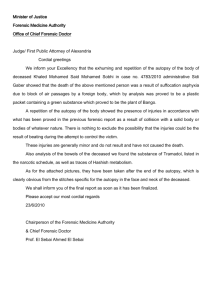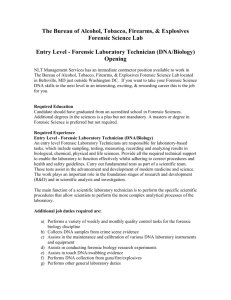Unit C: Pathology and Forensic Science Learning Logs Vocabulary
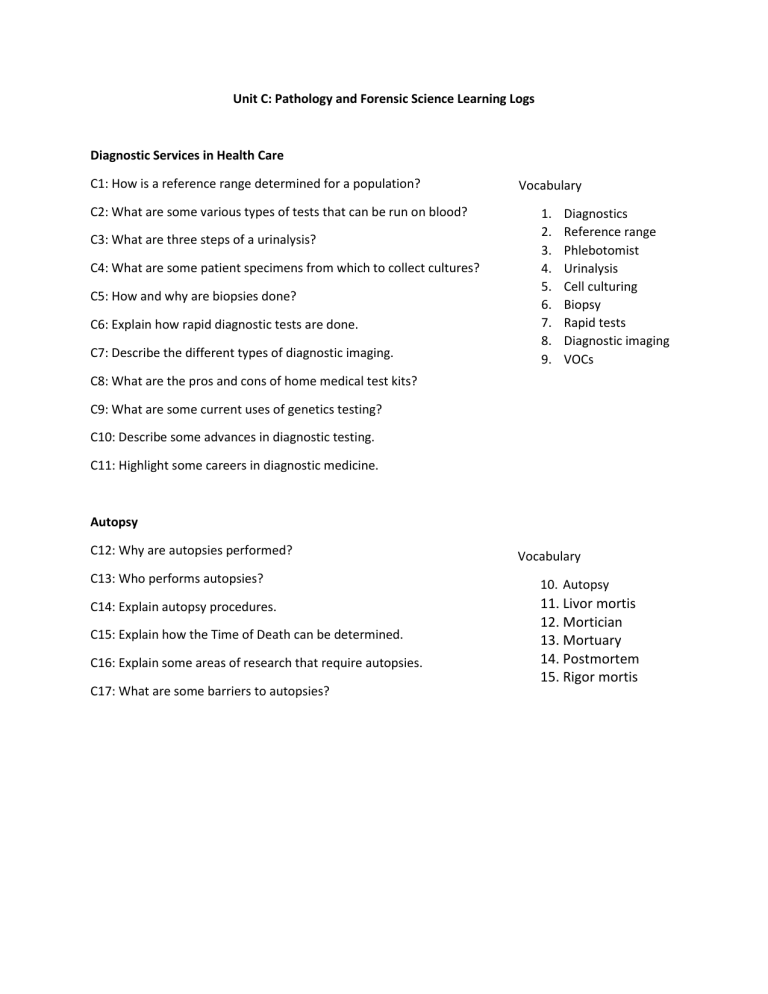
Unit C: Pathology and Forensic Science Learning Logs
Diagnostic Services in Health Care
C1: How is a reference range determined for a population?
C2: What are some various types of tests that can be run on blood?
C3: What are three steps of a urinalysis?
C4: What are some patient specimens from which to collect cultures?
C5: How and why are biopsies done?
C6: Explain how rapid diagnostic tests are done.
C7: Describe the different types of diagnostic imaging.
C8: What are the pros and cons of home medical test kits?
C9: What are some current uses of genetics testing?
C10: Describe some advances in diagnostic testing.
C11: Highlight some careers in diagnostic medicine.
Vocabulary
1.
Diagnostics
2.
Reference range
3.
Phlebotomist
4.
Urinalysis
5.
Cell culturing
6.
Biopsy
7.
Rapid tests
8.
Diagnostic imaging
9.
VOCs
Autopsy
C12: Why are autopsies performed?
C13: Who performs autopsies?
C14: Explain autopsy procedures.
C15: Explain how the Time of Death can be determined.
C16: Explain some areas of research that require autopsies.
C17: What are some barriers to autopsies?
Vocabulary
10.
Autopsy
11.
Livor mortis
12.
Mortician
13.
Mortuary
14.
Postmortem
15.
Rigor mortis
DNA Analysis
C18: Explain the structure and function of DNA.
C19: How unique is your DNA?
C20: Describe some applications of DNA analysis.
C21: How many STRs are used in a DNA profile?
C22: Explain some techniques for analyzing DNA.
Applications of Forensic Science
C23: What types of death do medical examiners spend their time investigating the most?
C24: What percentage of all deaths in NC were investigated by medical examiners?
C25: What are patients samples that toxicologists test?
C26: Explain the application of science that each of the following use.
• Medical examiner
• Forensic toxicology
• Forensic pathology
• Forensic anthropology
• Forensic odontology
Uncertainty in Medical Testing
C27: What types of errors can be found in medical testing? Give some examples.
C28: What are the sources of these medical errors?
Vocabulary
16.
Chromsomes
17.
Genes
18.
DNA profiling (fingerprinting)
19.
STRs
20.
Karyotyping
21.
Gel electrophoresis
22.
Polymerase Chain Reaction
23.
Microarrays
Vocabulary
24.
Coroner
25.
Screening
26.
Confirmation
27.
Chromatography
28.
Spectrometry
29.
Metabolism
30.
Archeology
Vocabulary
31.
False positive
32.
False negative
33.
Sensitivity
34.
Specificity
